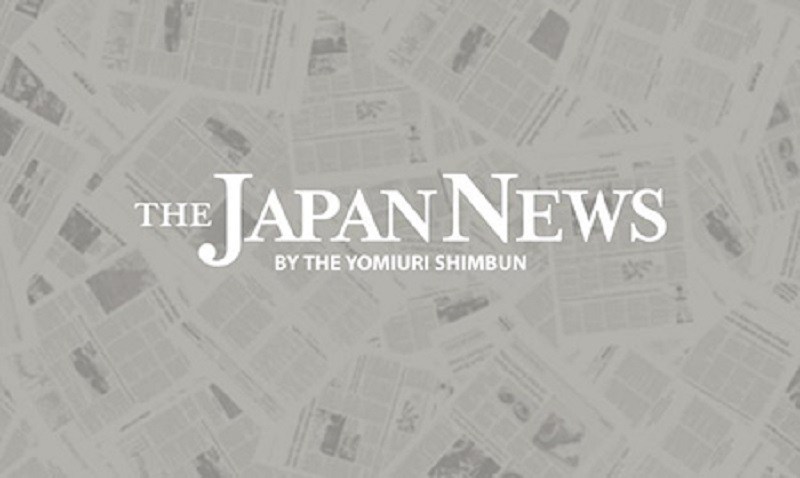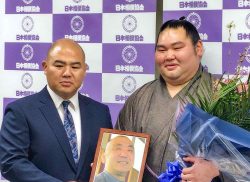
13:25 JST, February 5, 2021
Shortages of semiconductors for automobiles are becoming serious worldwide. The public and private sectors must explore ways to ensure stable procurement by reexamining the current supply chain.
Japanese automakers, such as Toyota Motor Corp., Nissan Motor Co. and Honda Motor Co., as well as foreign automobile companies, including Volkswagen AG of Germany and Ford Motor Co. of the United States, have all been forced to cut production due to difficulty in procuring semiconductors.
In a series of unprecedented moves, the governments of Japan, the United States and Germany have asked Taiwan, the world’s largest production base for semiconductors, to boost output. As Japan is said to rely significantly on imports, it will have no choice but to urge Taiwan further while trying to secure alternative companies capable of producing chips for the time being.
The global shortage is attributed to a sharp rebound in demand for semiconductors. The rebound came after auto production fell in the first half of 2020 due to the novel coronavirus pandemic, and automakers reduced semiconductor orders.
Automakers have been scrambling to increase procurement, but with more people staying at home due to the pandemic, demand for personal computers and smartphones have climbed, stretching the production capacity of semiconductor manufacturers.
In the semiconductor market, products used for automobiles account for only about 10% of the total. As automotive semiconductors are not advanced products, the profit margin is small. Semiconductor makers are therefore said to be reluctant to increase production. Some observers speculate it would take more than six months to resolve the shortage.
In Japan, semiconductors are sometimes called “the rice of industry” because they are indispensable for all kinds of industrial products, including electric appliances and automobiles.
Demand for automotive semiconductors in particular is likely to grow further with the spread of electric vehicles and autonomous driving. The ability to procure semiconductors likely will determine the competitiveness of the Japanese automobile industry.
Automakers compete with electronic equipment manufacturers for semiconductors, unlike in their conventional dealings with affiliated parts companies. It is necessary to build a new supply chain in cooperation with semiconductor companies.
Reviving the Japanese semiconductor industry is another challenge. In the second half of the 1980s, Japanese companies such as NEC Corp. and Hitachi, Ltd. dominated the world market. However, semiconductor trade friction between Japan and the United States and a stronger yen dampened their competitiveness. They have lagged behind their South Korean and Taiwan rivals, which have improved their technologies through huge investments.
The government took the initiative in reorganizing the industry to protect “Rising Sun semiconductors,” but failed to make active investments because of the slow decision-making, as various parties were involved in the process. One Japanese company was acquired by a U.S. company after going bankrupt.
Currently, Kioxia Corp., formerly Toshiba Memory Corp., is the only Japanese company among the top 10 semiconductor makers in the world by market share, among which it is ranked ninth.
However, many Japanese companies are among the world’s top makers of semiconductor manufacturing equipment and materials. A promising option for Japan is to attract foreign companies’ factories to the country and cooperate with them.
The government is urged to examine past failures and consider measures to strengthen domestic companies, including Kioxia.
Top Articles in Editorial & Columns
-

Riku-Ryu Pair Wins Gold Medal: Their Strong Bond Leads to Major Comeback Victory
-

Reciprocal Tariffs Ruled Illegal: Judiciary Would Not Tolerate President’s High-Handed Approach
-

China Provoked Takaichi into Risky Move of Dissolving House of Representatives, But It’s a Gamble She Just Might Win
-

Japan’s Plan for Investment in U.S.: Aim for Mutual Development by Ensuring Profitability
-

Flu Cases Surging Again: Infection Can Also Be Prevented by Humidifying Indoor Spaces
JN ACCESS RANKING
-

Producer Behind Pop Group XG Arrested for Cocaine Possession
-

Japan PM Takaichi’s Cabinet Resigns en Masse
-

Man Infected with Measles Reportedly Dined at Restaurant in Tokyo Station
-

Israeli Ambassador to Japan Speaks about Japan’s Role in the Reconstruction of Gaza
-

Videos Plagiarized, Reposted with False Subtitles Claiming ‘Ryukyu Belongs to China’; Anti-China False Information Also Posted in Japan
























